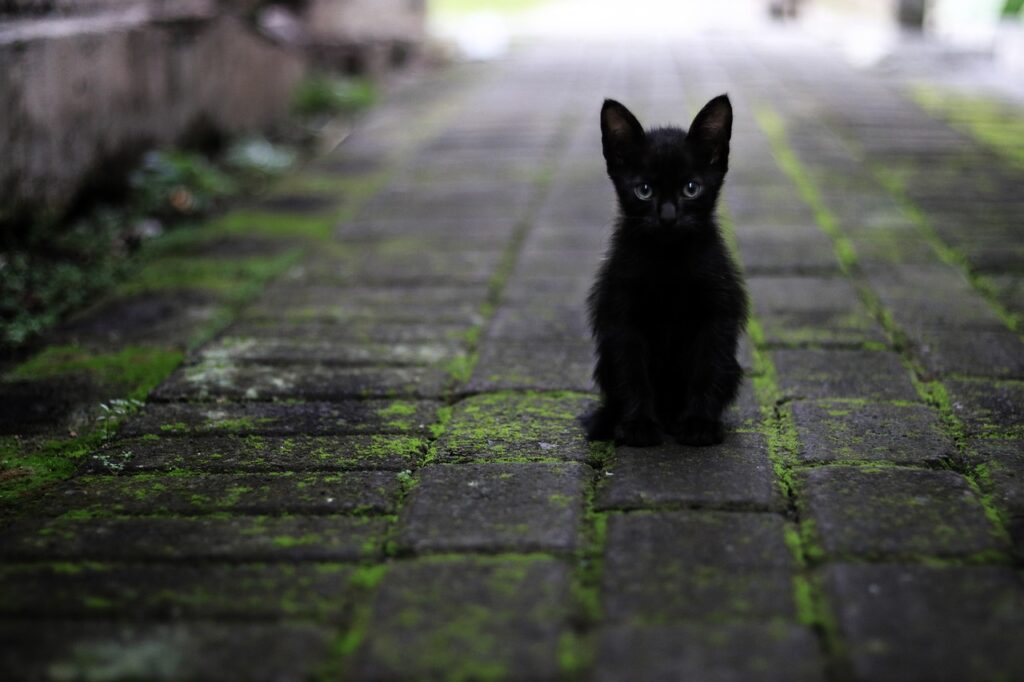Can Cats Eat Rice? – Yes, They can
Cats can safely consume rice in moderation. Rice, a common grain found in many households, can serve as a source of carbohydrates for cats, but should only be a small part of their diet. It may even be recommended in certain situations, like when a cat has an upset stomach, as rice can help to bind stool. However, it’s essential to remember that cats are obligate carnivores, meaning their natural diet consists mostly of meat. Their bodies are not designed to handle a heavy carb load, so rice should never replace their regular, protein-rich meals.
Can Kittens Eat Rice?
Similar to adult cats, kittens can eat rice, but it should be given with caution. As kittens are still growing, they require nutrient-rich diets to ensure proper development. While rice won’t harm your kitten, it doesn’t offer the array of nutrients that a kitten needs. A kitten’s diet should be focused on high-protein sources to promote healthy growth, so rice should only be given sparingly and is not a necessary part of their diet.
Things to consider when feeding rice to kittens?
When feeding rice to kittens, consideration of their sensitive digestive systems is crucial. Rice should be well-cooked, unseasoned, and given in tiny portions to avoid digestive issues. It’s also essential to monitor your kitten for any adverse reactions to the rice, such as diarrhea or vomiting, and consult with a vet if these occur.
Nutritional Benefits of Rice for Cats – Why Rice is Good for Cats
Easy to Digest
Rice is gentle on the stomach and can be helpful for cats experiencing gastrointestinal distress.
Useful for Binding Stool
In cases of diarrhea, plain boiled rice may help firm up a cat’s stool due to its starchy properties.
Energy Source
As a carbohydrate, rice can provide a quick source of energy, although cats have limited need for carbs in their diet.
Balancing Homemade Meals
For those cat owners who prepare home-cooked meals, rice can be used to balance the meal’s composition, particularly if recommended by a veterinarian.
Gluten-Free
For cats with sensitivities to gluten, rice is a safe grain option as it does not contain gluten.
Potential Allergies: Can Cats Be Allergic to Rice?
While rare, it is possible for cats to be allergic to rice. If you notice any unusual signs after your cat consumes rice, such as itchy skin, gastrointestinal upset, or respiratory issues, it may indicate an allergy.
Symptoms of Rice Allergies in Cats
- Gastrointestinal upset: Diarrhea or vomiting after consuming rice may be indications of an allergy.
- Itchy skin: Look out for excessive scratching or grooming.
- Respiratory difficulty: Any unusual coughing, wheezing, or difficulty breathing could be a symptom of an allergic reaction.
What to Do If Your Cat Shows Symptoms?
- Immediate diet adjustment: Remove rice from your cat’s diet to see if symptoms improve.
- Consult a veterinarian: Always seek professional advice to confirm allergies and get guidance on managing your cat’s diet.
- Monitor closely: Keep a keen eye on your cat’s behavior and physical condition, especially after dietary changes.
Recommended Amount: How Much Rice Can a Cat Consume?
Cats should only eat a small portion of rice at a time. A rule of thumb could be a tablespoon of cooked rice for an average-sized adult cat, either mixed with their regular food or on its own as an occasional treat. Always ensure that the rice is plain, without any added fats, spices, or seasonings that could be harmful to your cat.
Things to Consider When Feeding Rice to Cats
Remember that rice should not be a staple in your cat’s diet but can be included in small amounts. It’s vital to feed rice in moderation and maintain a diet primarily composed of high-quality, protein-rich cat food that meets all of their nutritional needs.
How to Feed Rice to Cats: A Quick Guide
While not a necessary addition to your cat’s diet, feeding rice to your cat can be done safely by ensuring it is plain, cooked, and offered in moderation. This can be occasional and should not disrupt their regular protein intake.
Simple Cooked Rice
Cook the rice in water without any salt or seasoning. Let it cool to room temperature before serving a small spoonful to your cat.
Rice & Chicken Broth
Avoid store-bought broths with onion or garlic. Instead, use homemade or vet-approved chicken broth mixed with cooked rice as a treat.
Rice Mix-In
Add a tablespoon of cooked, unseasoned rice to your cat’s usual wet food to add a little variety to their meal.
Conclusion
While rice is safe for cats in small amounts, it should not replace protein in their diet. Always consult with a vet, particularly when including new items like rice into your cat’s diet, and monitor for any signs of allergies. The rice served should always be cooked, plain, and offered in moderation to ensure your feline friend stays happy and healthy.



